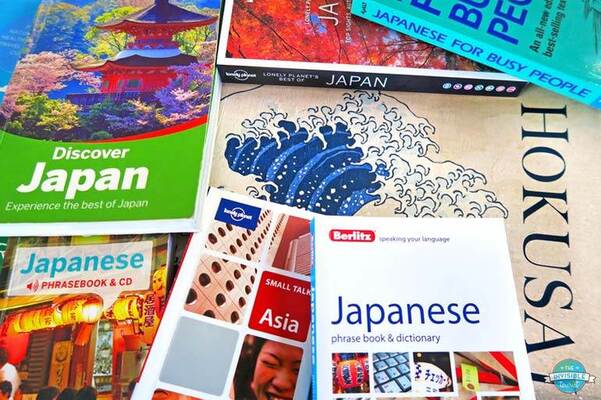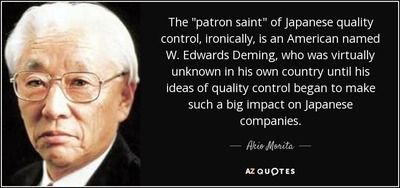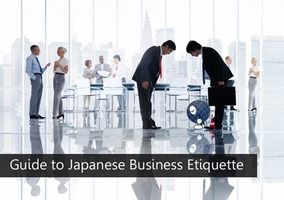
Congratulations on your first business visit to Tokyo! Japan is a unique and culturally rich country, and understanding Japanese business etiquette will help you make a positive impression. Here's a detailed guide on how to communicate effectively with Japanese in business situations:
Learn Basic Japanese Phrases:
While many Japanese business professionals speak English, knowing some basic Japanese phrases will be greatly appreciated and demonstrate your respect for their culture. Learn greetings like "Konnichiwa" (Hello), "Arigatou gozaimasu" (Thank you), "Sumimasen" (Excuse me/sorry), and "O-namae wa nan desu ka?" (What is your name?).
Use Polite Language:
Japanese communication is known for its politeness. Use the "-san" honorific suffix after the last name of the person you're addressing (e.g., "Tanaka-san"). Avoid using first names unless you are given permission to do so. Also, use polite language forms like "desu" and "masu" endings (e.g., "Hai," "Arigatou gozaimasu," "O-genki desu ka?").
Bowing:
Bowing is an essential part of Japanese culture and business etiquette. When meeting someone, bow slightly as a sign of respect. The depth of the bow varies depending on the situation, but a slight bow is usually sufficient in a business setting.
Exchange Business Cards (Meishi):
The exchange of business cards is a crucial ritual in Japan. Ensure you have plenty of professionally designed cards with your name and title written in both English and Japanese. Offer and receive business cards with both hands while bowing. Take a moment to read the other person's card before putting it away respectfully.
Maintain Professional Appearance:
Dress conservatively and professionally, especially in formal business meetings. Dark-colored suits with white shirts are standard for both men and women.
Be Punctual:
Punctuality is highly valued in Japanese culture. Arrive on time for all meetings and appointments.
Use Clear and Simple Language:
When speaking English, use clear and straightforward language, as many Japanese professionals may not be native English speakers. Avoid using jargon, acronyms, or slang.
Speak Softly and Respectfully:
Japanese communication tends to be more reserved and indirect compared to some Western cultures. Speak softly and avoid interrupting others while they are speaking. Respectful listening is crucial.
Respect Hierarchy and Decision-making Process:
In Japanese businesses, decisions are often made through a consensus-building process. Be patient and allow time for decisions to be made collectively.
Be Mindful of Body Language:
Keep your body language controlled and respectful. Avoid pointing with your finger, crossing your arms, or putting your hands in your pockets while talking.
Avoid Negative Responses:
In Japanese culture, direct refusals or negative responses are often avoided to maintain harmony. Instead of saying "no" outright, responses like "I will consider it" or "It might be difficult" are common ways to express reluctance.
Follow Up with Thank-You Notes:
After meetings or business interactions, sending a thank-you note or email expressing your appreciation is a thoughtful gesture.
Remember, the key to successful communication with Japanese professionals is demonstrating respect, patience, and an understanding of their culture. Embrace the opportunity to learn from their practices and build strong business relationships during your visit to Tokyo. Good luck!
English-Japanese Travel Phrases
Greetings:
Hello - こんにちは (Konnichiwa)
Goodbye - さようなら (Sayonara)
Thank you - ありがとうございます (Arigatou gozaimasu)
You're welcome - どういたしまして (Dou itashimashite)
Excuse me - すみません (Sumimasen)
Basic Phrases:
Yes - はい (Hai)
No - いいえ (Iie)
Please - お願いします (Onegaishimasu)
Sorry - ごめんなさい (Gomen nasai)
Do you speak English? - 英語を話せますか? (Eigo wo hanasemasu ka?)
I don't understand - わかりません (Wakarimasen)
How much? - いくらですか? (Ikura desu ka?)
Where is...? - ...はどこですか? (... wa doko desu ka?)
I would like... - ...をお願いします (... wo onegaishimasu)
Transportation:
Train station - 駅 (Eki)
Bus stop - バス停 (Basu tei)
Ticket - 切符 (Kippu)
One way - 片道 (Kataomoi)
Round trip - 往復 (Oufuku)
Departure - 出発 (Shuppatsu)
Arrival - 到着 (Touchaku)
Accommodation:
Hotel - ホテル (Hoteru)
Hostel - ユースホステル (Yusuhosuteru)
Reservation - 予約 (Yoyaku)
Check in - チェックイン (Chekku in)
Check out - チェックアウト (Chekku auto)
Room - 部屋 (Heya)
Bathroom - お風呂 (Ofuro)
Food and Drink:
Restaurant - レストラン (Resutoran)
Menu - メニュー (Menyu)
Water - 水 (Mizu)
Beer - ビール (Biiru)
Sake - 酒 (Sake)
Sushi - 寿司 (Sushi)
Tempura - 天ぷら (Tempura)
Ramen - ラーメン (Ramen)
Vegetarian - ベジタリアン (Bejitarian)
Emergencies:
Help! - 助けて! (Tasukete!)
Police - 警察 (Keisatsu)
Hospital - 病院 (Byouin)
Doctor - 医者 (Isha)
Ambulance - 救急車 (Kyukyusha)
Fire - 火事 (Kaji)
I'm lost - 道に迷いました (Michi ni mayoi mashita)
Have a good trip! - 良い旅を!(Yoi tabi wo!)
TOKYO TRAVEL GUIDE
Tokyo is a vibrant city with a perfect blend of traditional culture and modernity. Here's a detailed travel guide to help you make the most of your first business visit to Tokyo:
1. Sightseeing Spots:
Senso-ji Temple: One of Tokyo's most famous and oldest temples located in Asakusa. It's a great place to experience traditional Japanese architecture and culture.
Tokyo Skytree: The tallest tower in Japan, offering stunning views of the city from its observation decks.
Shibuya Crossing: One of the busiest pedestrian crossings in the world, iconic for its organized chaos.
Tsukiji Outer Market: Though the inner wholesale market has moved, the outer market still offers a fantastic array of fresh seafood, street food, and sushi restaurants.
Meiji Shrine: A peaceful Shinto shrine nestled in a lush forest near Harajuku, offering a tranquil escape from the city's hustle and bustle.
2. Food:
Sushi: Try sushi at reputable places like Sukiyabashi Jiro or Sushi Dai at Tsukiji Outer Market.
Ramen: Indulge in a bowl of delicious ramen at popular spots like Ichiran or Ippudo.
Izakaya: Experience the local pub culture and try various small dishes with drinks.
Yakitori: Enjoy grilled skewered chicken, vegetables, and other items at traditional yakitori restaurants.
Tempura: Savor crispy tempura dishes, a specialty of Tokyo.
3. Hotels:
Tokyo offers a wide range of accommodation options to suit different budgets and preferences. Some popular areas to consider for hotels are Shinjuku, Shibuya, Ginza, and Asakusa.
4. Restaurants:
Apart from the specific food types mentioned earlier, Tokyo is a food paradise with countless dining options. You can explore themed cafes, Michelin-starred restaurants, and various international cuisines. When in doubt, look for busy places with locals, as that's usually a sign of good food.
5. Nightlife:
Shinjuku: This area boasts a lively nightlife scene with bars, clubs, and entertainment venues.
Roppongi: Known for its clubs, bars, and international crowd.
Golden Gai: A historic area in Shinjuku with small bars, each with its unique theme and style.
Izakaya Alleys: Explore the narrow alleys of Omoide Yokocho and Nonbei Yokocho for a true local izakaya experience.
6. Onsen:
While you won't find natural hot springs within Tokyo, you can visit onsen theme parks like Odaiba Oedo Onsen Monogatari or Spa LaQua in Tokyo Dome City for a relaxing experience.
7. Local Transport:
Trains: Tokyo's extensive and efficient train network is the best way to get around the city. Get a Suica or Pasmo card for easy access to trains and buses.
Subway: The subway system is well-connected and convenient for reaching various parts of the city.
Taxis: Taxis can be expensive but are useful for short trips or when public transport is not available.
Walking: Exploring certain neighborhoods on foot is a great way to discover hidden gems.
Tips:
Language: While English signage is available in tourist areas, learning a few basic Japanese phrases can be helpful.
Etiquette: Respect local customs, such as bowing and taking off your shoes in certain places.
Cash: Always carry some cash, as not all places accept credit cards, especially smaller eateries and markets.
Internet: Rent a portable Wi-Fi device or get a local SIM card to stay connected while roaming the city.
Remember to balance your work commitments with exploration and enjoy your time in Tokyo!





